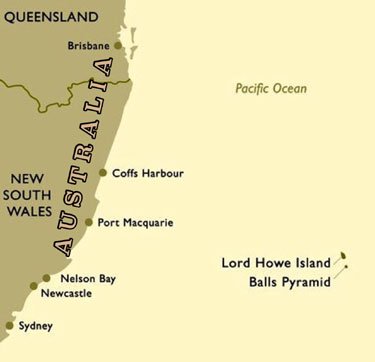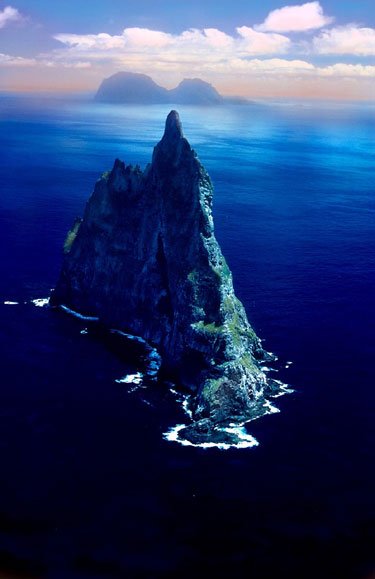Ball’s Pyramid
Australia, Ball's Pyramid
Ball’s Pyramid
Ball’s Pyramid is an erosional remnant of a shield volcano and caldera that formed about 6.4 million years ago. It lies 20 kilometres (12 mi) southeast of Lord Howe Island in the Pacific Ocean. It is 562 metres (1,844 ft) high, while measuring only 1,100 metres (3,600 ft) in length and 300 metres (980 ft) across, making it the tallest volcanic stack in the world. Ball’s Pyramid is part of the Lord Howe Island Marine Park in Australia.
Like neighboring Lord Howe Island and the Lord Howe seamount chain, Ball’s Pyramid is based on the Lord Howe Rise, part of the submerged continent of Zealandia. It is positioned in the center of a submarine shelf. The shelf is 20 kilometres (12 mi) in length and averages 10 kilometres (6.2 mi) in width and lies under an average depth of 50 metres (160 ft) of water. It is separated by a 500 metres (1,600 ft) deep submarine canyon from another shelf on which Lord Howe Island is located. The cliffs of the stack continue under the water surface to the level of the shelf.
Ball’s Pyramid is uninhabited.










